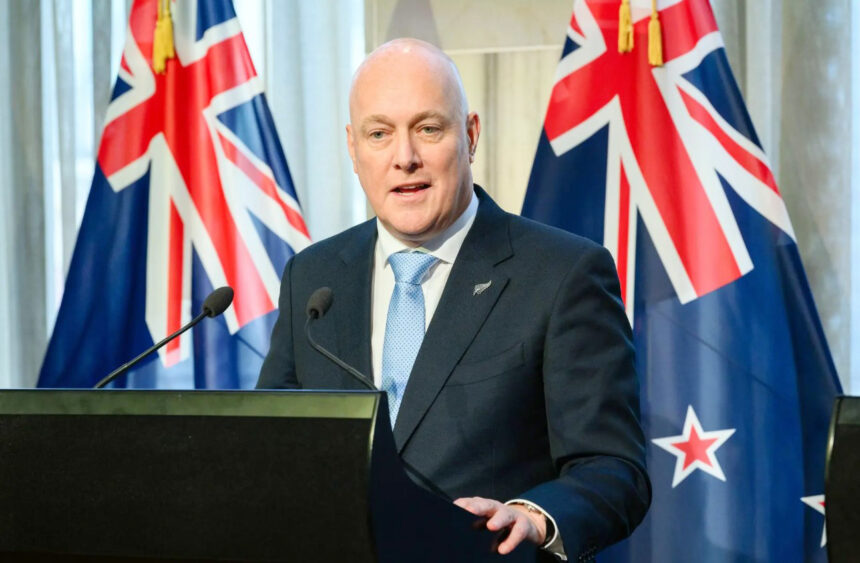SYDNEY – New Zealand’s prime minister proposed Thursday a new alliance to battle global export restrictions, enlisting members of a 12-nation trans-Pacific free trading agreement and the European Union.
The US tariffs had “shocked” financial markets, though Donald Trump’s pause on the highest levies — excepting those on China — was “welcome”, prime minister Christopher Luxon said.
The consequences of a world retreating from trade and uncertain about the economic future would be “more significant”, however, he warned in a speech in Wellington.
Countries in the Comprehensive and Progressive Agreement for Trans-Pacific Partnership (CPTPP) accounting for about 15% of global economic activity could help promote free trade, he said.
“One possibility is that members of the CPTPP and the European Union work together to champion rules-based trade and make specific commitments on how that support plays out in practice,” the prime minister said.
“My vision is that includes action to prevent restrictions on exports and efforts to ensure any retaliation is consistent with existing rules.”
Collective action by a large portion of the global economy would be a “significant step” towards preserving free trade and protecting supply chains.
The trans-Pacific CPTPP has a dozen members including Canada, Mexico, Chile, Peru, Malaysia, Japan, Brunei, Vietnam, Singapore, Australia, New Zealand, and most recently Britain.
Some commentators had declared an end to the era of free markets, free trade, free people and the rules-based international order, Luxon said.
“For my part, I am not ready to throw in the towel quite yet.”
The prime minister said he would telephone world leaders to discuss how to strengthen the rules-based global trading system.
He planned to fly to Britain this month to meet Prime Minister Keir Starmer and discuss trade, security and geopolitics in Europe and the Asia-Pacific.
The world’s rules-based trading system faced its biggest challenge since the 1947 signing of a global free trade agreement known as GATT, Luxon said.
For New Zealanders, it would be “confronting to watch strategic competition and the deterioration of rules-based trade come to our neighbourhood, the Indo-Pacific”.
“But the response for New Zealand cannot be retreat,” Luxon added.
“New Zealanders are at our best when faced with adversity and we thrive when we compete on the world stage.”
Trump said Wednesday he had authorised a 90-day pause on the highest import tariffs he put on countries that have a surplus in goodstrade with the United States.
But he kept a baseline duty level of 10%.
And he raised tariffs on China to 125% in response to Beijing’s retaliatory levy of 84% on US imports. – Nampa/AFP



